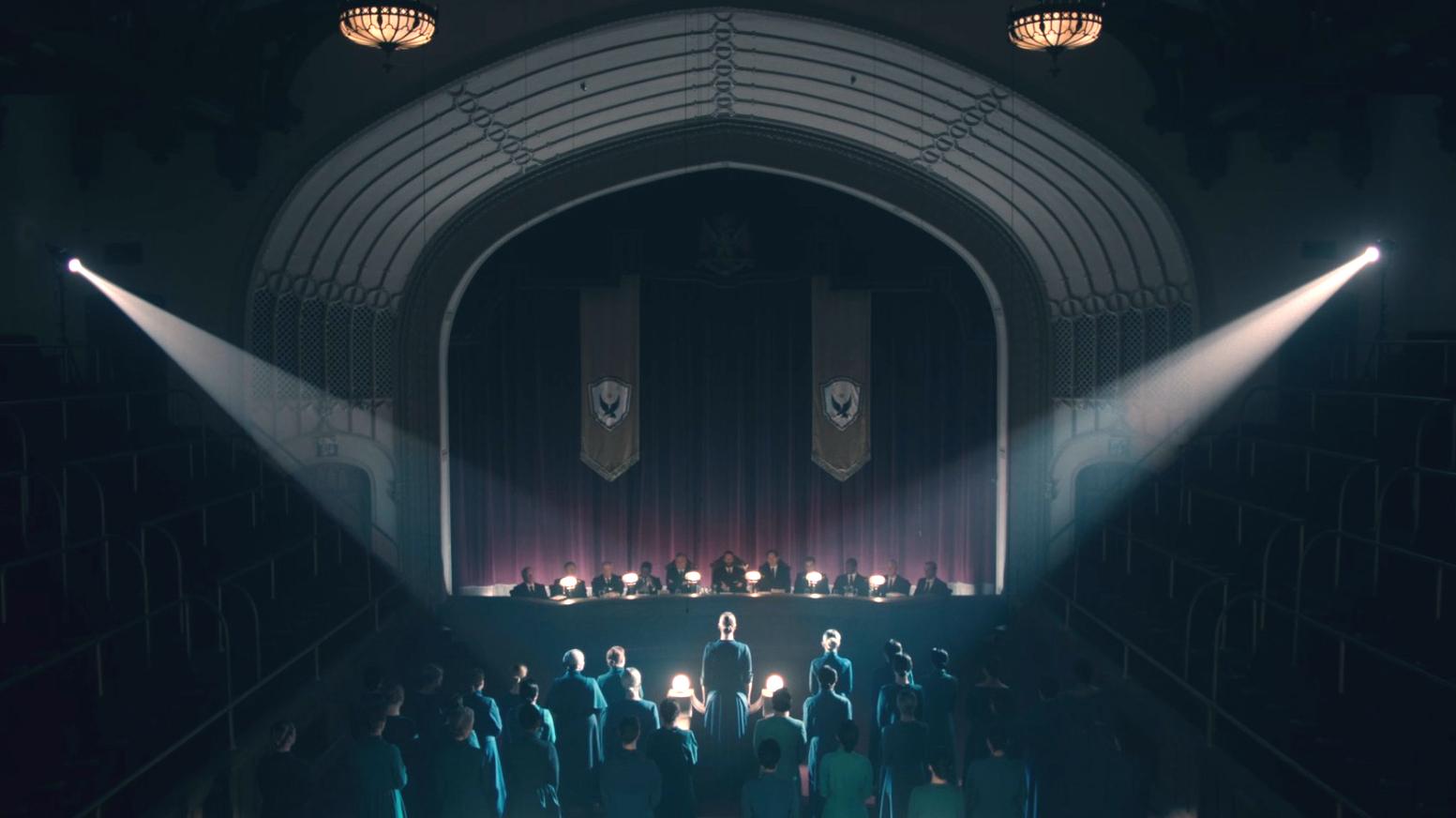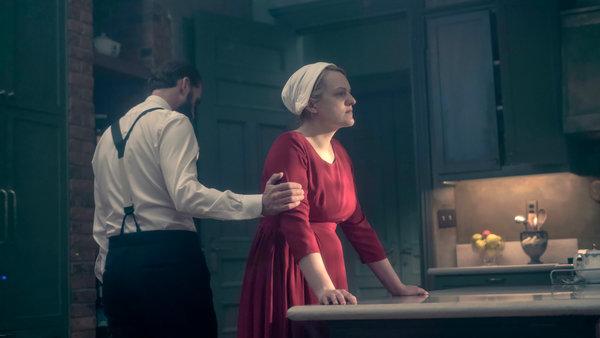{Note: this review contains plot revelations — also known as **Spoilers**}
Watching the series ”The Handmaid’s Tale” on Hulu can be an exercise in tolerance — as in how much torture can you tolerate in a TV show? Now that the show is free from the plot that drove the Margaret Atwood novel, my hope was that writers of the show would explore storylines and characters in more original ways — but that didn’t quite happen.
My issue with this season of ”The Handmaid’s Tale” is how the producers got stuck on the torture narrative. It’s been made abundantly clear that Gilead is cruel, oppressive, ultra-conservative Christian theocracy, but to dwell on the levels of cruelty throughout the episodes that comprise the second season seems more excessive than constructive to the story. Moreover, doing so belabors a point that we don’t need to be reminded of, but it also serves to frustrate our expectations that something other than oppression and cruelty should be driving the plot. ”The Walking Dead” has this problem, in that it gets stuck in a cycle of violent chaos and tenuous safety. ”The Handmaid’s Tale” demonstrates week after week it’s also mired in a cycle: that of torture and simmering defiance.
Think about what we’ve watched this season: women been psychologically tortured through a mock hanging, women having to dig radioactive dirt out of the ground while suffering radiation sickness, and the Waterfords raping Offred/June to both speed along the delivery of her baby and ”teach her a lesson.” What fun! Oh, and I forgot to mention the drowning of Eden and her paramour in a swimming pool while a large crowd had to watch, and the severing of Serena Joy’s pinkie finger for daring to suggest changes to the covenant/constitution of Gilead by reading from The Bible (women are forced to be illiterate).
Throughout the series, Serena is a character who alternates between spiteful and sympathetic. However, at various moments we’re reminded of her role in shaping the power structure of Gilead through her radical activism and penning of the anti-feminist book, ”A Woman’s Place.” All her work (that of a working professional who thrived in an environment where ideas and action intersected) led to her subjugation. It’s a bitter irony that manifests itself in twisted ways. I know the creators of the show want viewers to have some sympathy for Serena’s plight, but for me it was difficult to feel any kind of compassion for a woman whose anti-liberal dreams of a fascist religious utopia were built on the wholesale repression of her gender — even when she realizes the scope of her mistake.
June/Offred continues to confound as well. She clearly wants to strangle The Commander after all the psychological manipulation and physical torture she’s had to endure. However, when given the opportunity to escape Gilead for Canada, she decides to stay to get her eldest daughter out — while giving her infant daughter (who was being raised by the Waterfords) to Emily in her escape. How June plans on rescuing her daughter will most likely be spelled out in in the next season, but it gets a little tiring seeing Elisabeth Moss periodically giving viewers long takes of her ”defiant face”…and then very little happens to change the dynamics.
But, the dynamics seem to be changing (and thank the TV gods for that!) in the last episode. It’s clear Gilead is starting to show stresses and strains from within and without (and that’s interesting), but the main arc felt like it was wading through fast-drying concrete, mired in a not-to-compelling nexus of (sometimes torturous) relationships between Offred/June, Serena, The Commander, Nick, the other handmaids, and Aunt Lydia — whose fate is uncertain after Rory Gilmore…sorry, Emily (Alexis Bledel) plunged a blade into Aunt Lydia’s back and kicked her down the stairs. I’m sure Lydia will survive because Ann Dowd is just too good in that role for her to be snuffed out like that. Plus, we never got her backstory. We got a hint that she may have killed her sister’s child, but it was kind of cryptic, so it’s unclear what transpired there — but inquiring minds want to know!
For season three, I’m hopeful the writers will explore how a small, but organized band of religious radicals were able to overthrow the U.S. government by (I’m guessing) commandeering the nuclear codes and firing missiles at various parts of the continental U.S. to win a war that paved the way to the creation of Gilead. Yes, such a putsch against a well-armed military seems preposterous — but so did the election of Donald Trump.






Comments